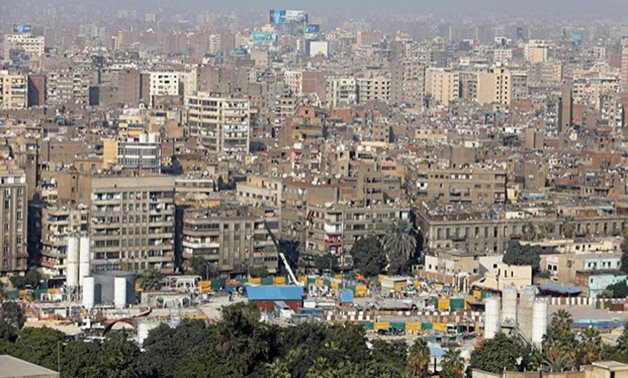
A general view of clustered buildings in Cairo, Egypt, January 28, 2018. REUTERS/Mohamed Abd El Ghany
CAIRO – 8 May 2022: Egypt Purchasing Managers’ IndexTM (PMI) recorded 46.9 in April, up from 46.5 in March.
It noted that the index signaled a solid deterioration in business conditions that was the second-fastest since June 2020.
“Broadly matching that seen in March, Egyptian non-oil businesses registered a marked decline in new orders during April as client demand was once again offset by rising living
costs and selling charges,” it added.
The data from the index noted that overall new business fell for the eighth month running, as weak domestic orders ran parallel with a fall in new export sales.
According to the data, non-oil business activity also decreased sharply in April. Whilst easing fractionally from March, the downturn was still the second-quickest in just under two years as firms often reported making cut-backs due to rising input costs.
"Non-oil business activity in Egypt continued to fall sharply in April as businesses faced a further increase in material and energy costs due to the war in Ukraine and a devaluation of the pound in late-March. New orders were also hit as customers reined in their spending, leading to a reduction in employment that was the most marked in exactly one year,” Economist at S&P Global, David Owen stated.
Owen added that manufacturers remained the most exposed to these setbacks, with increased raw material prices and supply shortfalls leading to a solid cut in goods production, although wholesale & retail and services also saw a drop in activity. Construction was the only bright spot as PMI data suggested that activity and new work had increased for the first time in 2022 so far.
"The continuation of the war in Ukraine meant that firms expect further price and supply challenges, resulting in another relatively downbeat outlook for business activity. The gap between input prices and output prices also signaled that firms are taking on a large part of the cost burden and delaying price rises until the demand for the situation has recovered,” he added.
The data noted that cost pressures largely arose from increased prices for energy and raw materials due to the war in Ukraine, although many panelists also commented on a recent devaluation of the Egyptian pound. Despite softening marginally, the rate of overall input price inflation was strong and remained above the average seen in 2021.
It added that with cost burdens remaining severe, Egyptian firms made further efforts to limit their spending on materials and labor. Purchasing activity fell sharply and for the fourth successive month, resulting in a solid reduction in average stock levels. At the same time, businesses reported longer wait times for inputs as some vendors were forced to delay deliveries due to reduced material supply and higher prices.
Lower demand pressures meant that many firms had a degree of spare capacity in April, as indicated by a modest decrease in backlogs of work. Subsequently, some firms reported leaving open job positions vacant, leading to a drop in employment levels that was the quickest seen in exactly one year, the data noted.

Comments
Leave a Comment